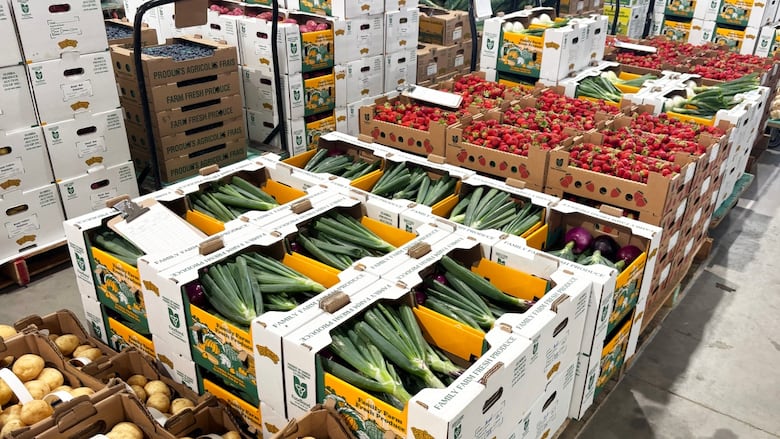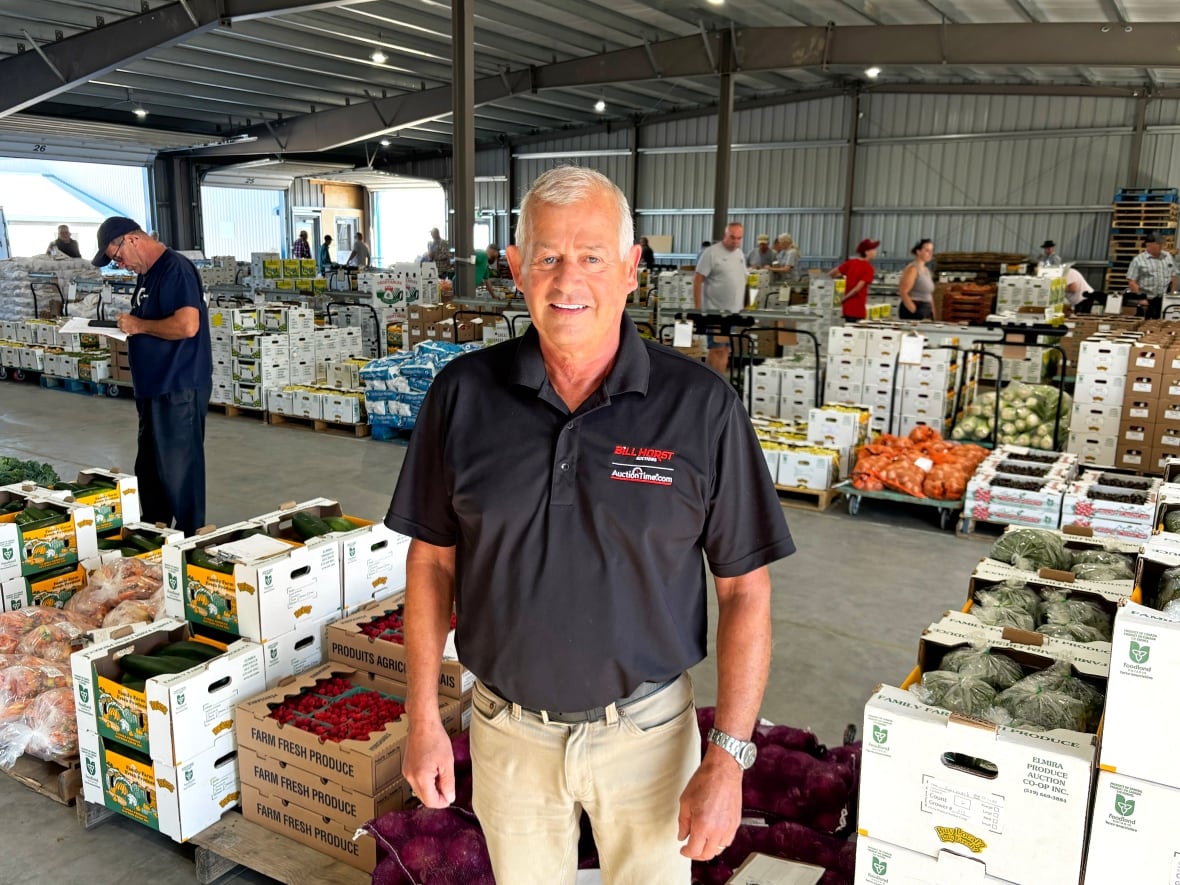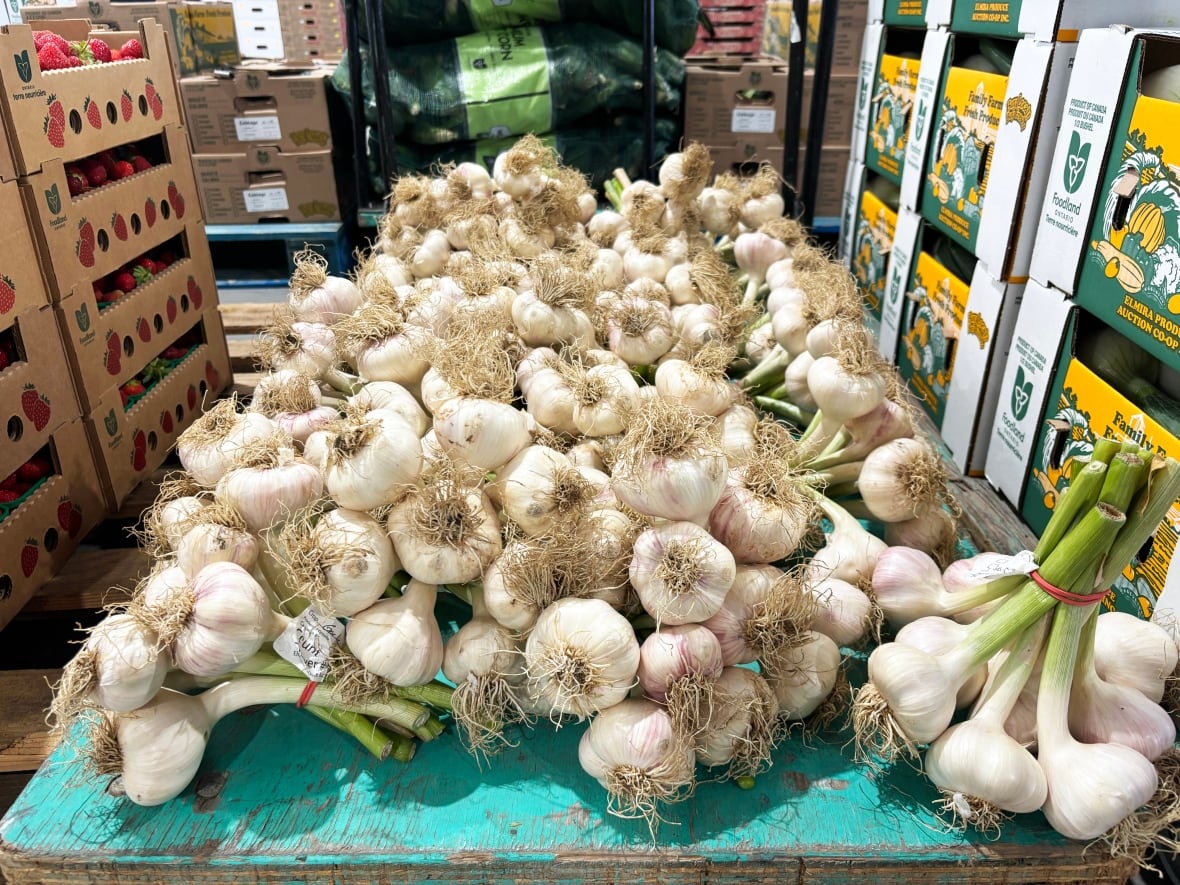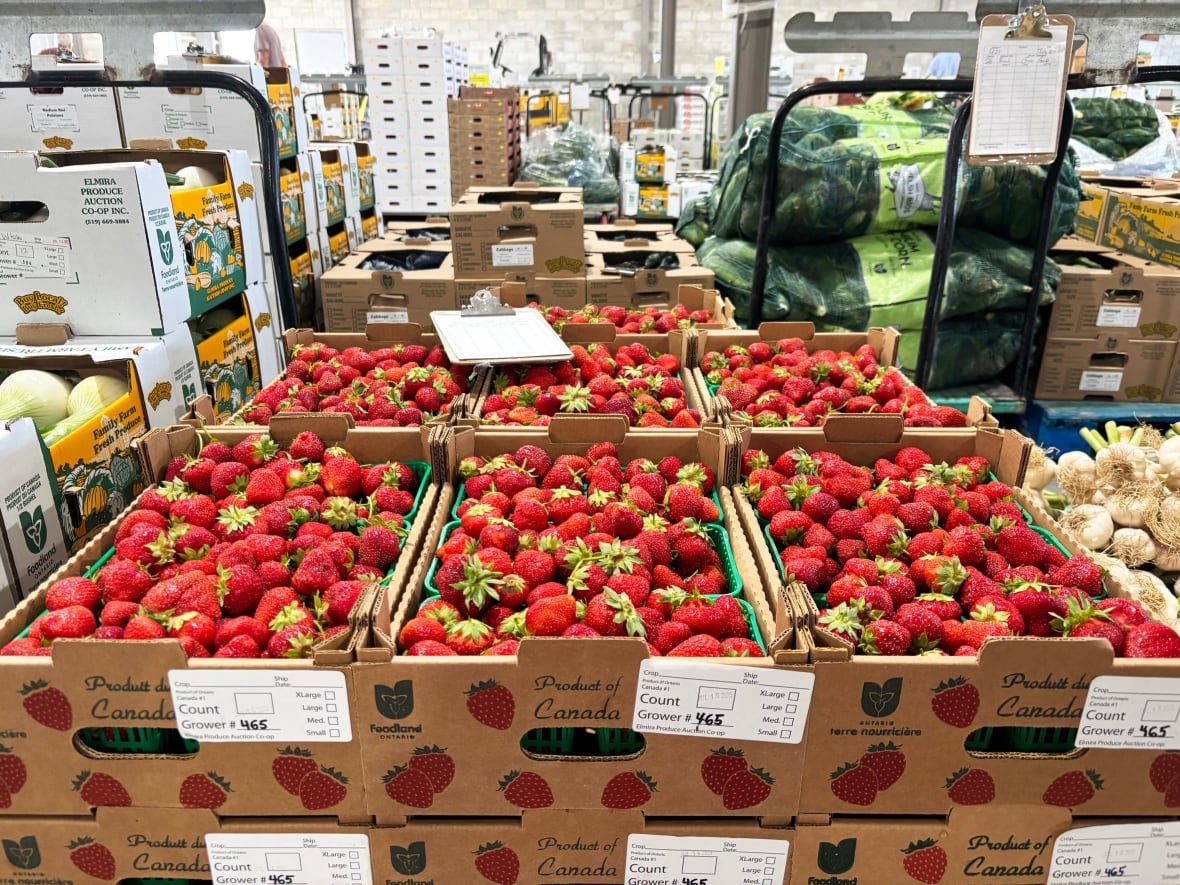Take a look inside the Elmira Produce Auction with Jasmine Mangalaseril
Auction has been providing fresh produce to local farm markets, independent grocers for more than 2 decades

Horse and buggies, vans, and trucks sit outside the Elmira Produce Auction Co-operative, just north of the town's centre.
Inside the grey building, the atmosphere revs up for business as dozens of buyers inspect the day's lots of fruits and vegetables that sit on dollies. Behind the flower and plant section, buyers and sellers chat at tables by the canteen in the back corner as the kitchen turns out hearty, fresh-cooked breakfasts.
At 9 a.m., all eyes and ears are on auctioneer Bill Horst. On this particular Wednesday, his auction chant — a blisteringly fast patter combining the current bid and the next highest bid — lasts about three hours as he makes his way throughout the auction grounds. Many lots sell within 45 seconds.
"I try and be fair to everybody. The grower has to make money or they're not going to bring the product, and the buyer has to retail it and make money," said Horst. "I have to stay in control. I respect my buyers, they respect me, and everything goes great."
The crowd follows Horst and other auction staff, as they progress through rows of dollies. Hours earlier, bushels of tomatoes, giant cartons of cabbages, sacks of carrots, crates of corn, bundles of green onions neatly laid in boxes were set up in the building while flats of late strawberries sat in the fields.

Winnings are loaded into waiting trucks and vans. They'll go on to stock stores, on-farm markets and professional kitchens from Sault Ste. Marie to Simcoe.
"It's very local food that's coming in," explained Mervin Martin, a grower and co-operative board member. "A great percentage of that produce would have been picked that very morning to be at the [Monday] auction at 1:00 in the afternoon, would actually end up on the consumer's table by suppertime."
Bringing sellers and buyers together
The Elmira Produce Auction Co-operative was established 21 years ago out of the mad cow crisis that wreaked havoc on Canadian dairy and beef farmers whose herds were impacted by the disease bovine spongiform encephalopathy.
While insurance helped other producers defray losses, Mennonite farmers faced devastation.
"They were looking for different options of generating some income," said Martin. "A way of creating an outlet for local co-farmers to market their produce."

It can be difficult for buyers and small growers to find each other, but the co-operative brings both together under one roof.
They have roughly 300 growers today, coming from Waterloo region, Wellington County and beyond. The number of auction days varies throughout the year but during the growing season, there are three sales per week.
Tom Pate of Brantford's Brantwood Farms attends the auction to sell his produce and buy for his farm market.
"We're all sort of like independent retailers or green grocers or people that have farm markets. That's the crowd that's up there," Pate said. "Farmers that are doing the buying and the selling and small retailers."
Buyers also include distributors supplying professional kitchens.

Along with sellers who now bring trailer loads of vegetables versus the truckloads from 20 years ago, there's also greater variety of products on the sales floor. Over 15 years, Pate said he's seen produce such as grape tomatoes, sweet potatoes, and kohlrabi go mainstream.
Laurie Neubrand is a buyer and seller from West Perth and the Stratford and District Agricultural Society's board president. She said the increased variety also includes previously unfamiliar produce grown by and for newcomers.
"We're starting to see some vegetables they've been growing from their mother countries," said Neubrand. "Some of them are old standards, like okra. I saw … tomatillos today. We don't see too much of that."
Unlike the Ontario Food Terminal, which is Canada's largest wholesale fruit and vegetable distributor, Martin said the Elmira Produce Auction Co-operative is open to the public and "nobody gets chased out."

Buyers must register with the office. To create a fair playing field with re-sellers, a 20 per cent surcharge is levied on those buying for home use. Packages, such as one bushel or bag, cannot be split up.
"Anybody can come and see the auction." said Martin. "It's fascinating to anybody."

